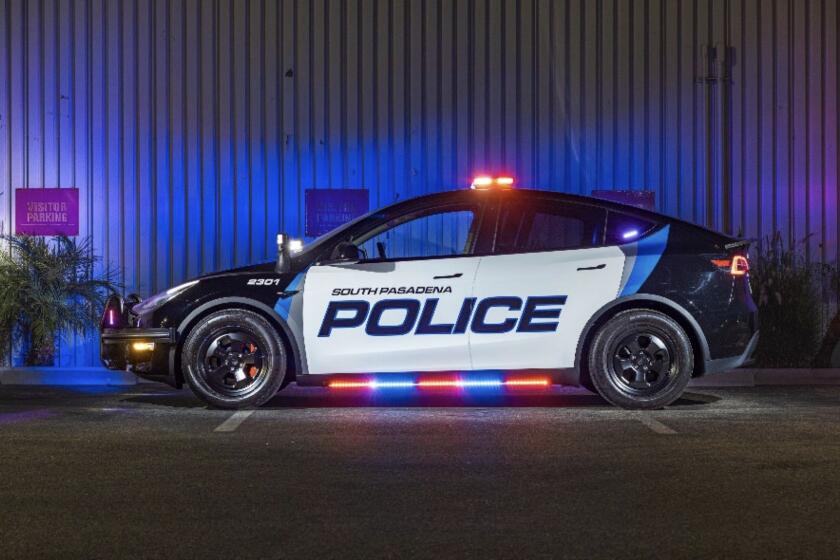Change in Zero Emission Mandate Sought : Pollution: Compromise would allow partial credit for hybrid cars that can switch between gas and batteries.
Air quality officials have proposed changes in California’s controversial mandate for pollution-free cars to help bridge the gap between today’s gasoline-powered cars and emerging electric vehicles.
The proposal, discussed at an air agency meeting Wednesday, would modify the mandate to allow hybrid cars--those that run on both electricity and a small gasoline-powered engine. Such cars would qualify for partial credit toward meeting the zero emission requirements.
If approved by the California Air Resources Board as expected early next year, the amendments would be the first changes in the groundbreaking clean-car regulation since it was adopted in 1990.
Under the existing state mandate, 2% of cars sold by major manufacturers beginning in 1998 must emit no pollutants, which essentially means electric powered cars. That amounts to about 25,000 electric cars per year, increasing to 10%, or 160,000 cars, in 2003.
California’s exhaust-free car mandate is a cornerstone of the efforts to clean the air in the Los Angeles Basin and other smoggy cities.
Gov. Pete Wilson and the state air agency have been under intense pressure from Detroit and Japanese auto makers to rescind the mandate or at least push back the deadlines. The manufacturers say electric car technology is still too inefficient and expensive for showrooms.
Auto companies have made great progress in developing electric cars in recent years, but batteries in their prototypes remain limited to less than 100 miles between charges. In a hybrid, once the battery’s range is used up, the driver can automatically switch to gasoline.
“With a hybrid, range is virtually unlimited,” said Jerry Martin, an Air Resources Board spokesman. “It definitely offers another alternative to the consumer.”
Wilson Administration officials stress that they are not backing off from pursuing exhaust-free cars, just sending a message to the auto industry that they are flexible in giving some credit to other technologies.
“This is just a refinement,” said Dan Pellissier of the California Environmental Protection Agency. “We’re trying to be inclusive because folks have come out and said we appear to have a hybrid technology that will help improve the air and meet what the customers say are the deficiencies in electric cars.”
But General Motors, Ford and the other major auto makers said Wednesday that they remain unsatisfied, saying the amendments provide no help in meeting a mandate they call unrealistic. Engineers from the companies said the hybrids are just as challenging to create as all-electric vehicles.
“These proposals do not provide any additional flexibility to General Motors in meeting the ZEV [zero emission vehicle] mandate,” said Gerald Skellenger, technical director of a hybrid project that teams General Motors with the Department of Energy.
“It is unlikely that [hybrids] will be commercially available even in low volumes until after the turn of the century,” Skellenger said.
On the other hand, some smaller manufacturers welcomed the proposal and said the cars could be ready soon. Mitsubishi has developed a hybrid that has created enthusiasm among many observers.
John Reuyl, a Stanford University professor who started a hybrid-producing company called NEVCOR, said the cars are an “ideal compromise” for consumers who want “more convenience, flexibility and security” than a battery-only car provides.
Veronica Kun of the Natural Resources Defense Council said her group and other environmentalists have no major objections to the amendments because they would bring comparable reductions in smog and offer consumers a wider range of low-polluting options.
Hybrid cars would get credits toward the mandate based on the range of their batteries. For example, a hybrid that can travel 50 miles between charges could get as much as 79% credit. The air board staff has also proposed a new category giving a car full credit if its exhaust is equivalent to the pollution generated by a power plant providing the electricity to recharge the battery. Fuel cells, a highly advanced technology, are one of only a few options with emissions that low.



